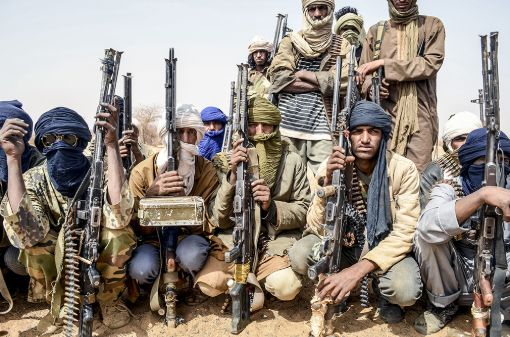The al Qaeda-linked group Jama’a Nusrat ul-Islam wa al-Muslimin (JNIM) has claimed responsibility for Saturday’s devastating attack near Barsalogho in north-central Burkina Faso, asserting it killed nearly 300 people. However, the group disputes reports of civilian casualties, stating it targeted militia members allied with the Burkinabe army, according to a translation by the U.S.-based SITE Intelligence Group.

This claim contradicts earlier reports from victims’ relatives, who stated that at least 400 civilians were killed while digging defensive trenches on military orders. The attack, one of the deadliest in Burkina Faso’s nearly decade-long struggle with Islamist violence, has thrown the country’s security situation into sharp relief.
In a communique translated by SITE, JNIM stated, “Those who were eliminated in this attack are nothing but militias affiliated with the Burkinabe army … not as they lied and said that they were civilians.” This statement directly challenges the narrative of a civilian massacre that has circulated since the attack.
The conflicting accounts highlight the complex and often blurred lines between civilians and combatants in Burkina Faso’s ongoing conflict. Ryan Cummings, director of analysis at the Africa-focused risk-management company Signal Risk, noted, “Civilians are playing a significant role in the conflict. But civilians that are assisting the military are seen as collaborators. This has made them targets of attacks.”
Several videos purportedly filmed by the militants and circulated on social media show dozens of bodies in trenches, most in civilian clothing. These images have fueled debate about the nature of the attack and its victims.

Burkina Faso’s ruling military junta has yet to provide an official death toll but acknowledged that civilians, soldiers, and volunteer army auxiliaries known as VDPs were among the victims. State television reported that the attack occurred while Barsalogho locals were engaged in unspecified community work.
The citizen advocacy group Collectif Justice pour Barsalogho has accused the authorities of negligence for using the military to compel the community to build trenches, “which turned out to be mass graves.” In a statement, the group declared, “Our parents were led to the slaughter.”
This incident underscores the growing reliance on civilian participation in Burkina Faso’s fight against jihadist groups, a strategy that has increasingly put non-combatants at risk. The country, along with its Sahel neighbors, has been grappling with an Islamist insurgency that began in Mali in 2012 and has since spread across the region.
The security situation in Burkina Faso has deteriorated significantly in recent years, leading to two military coups in 2022. However, the new authorities have struggled to contain the violence. According to data from the Armed Conflict Location and Event Data Project, over 6,500 civilians have been killed in Burkina Faso since the start of 2020, with more than half of these deaths occurring under the current government.
Reuters



